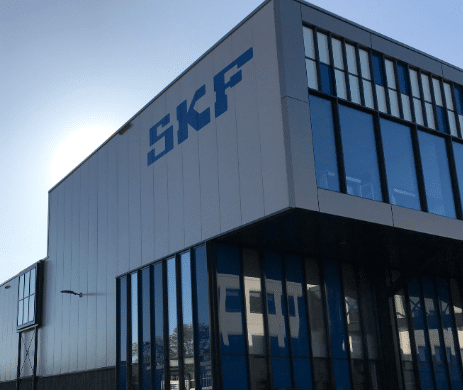
Introduction:
Bearing reliability and performance stability are critical factors influencing the efficiency and longevity of machinery across various industries. SKF and TIMKEN, as leading manufacturers of bearings, prioritize the enhancement of reliability and stability in their products. This article aims to assess and compare the reliability and performance stability of SKF bearings and TIMKEN bearings, highlighting their respective strengths in ensuring operational continuity and durability.
Reliability Assessment:
SKF Bearings:
Robust Design: SKF employs advanced engineering principles and rigorous testing protocols to ensure the robustness and reliability of its bearings. SKF’s designs undergo extensive simulations and real-world testing to verify performance under diverse operating conditions, including high loads, vibrations, and temperature fluctuations.
Quality Assurance: SKF maintains stringent quality control measures throughout the manufacturing process, from raw material inspection to final product validation. The company’s commitment to quality assurance encompasses comprehensive testing procedures, adherence to international standards, and continuous improvement initiatives to minimize defects and ensure consistent product reliability.
Field Performance: SKF bearings have established a proven track record of reliability and longevity in various industrial applications worldwide. End-users rely on SKF bearings for critical operations where downtime is not an option, attesting to their trustworthiness and performance under demanding conditions.
TIMKEN Bearings:
Precision Manufacturing: TIMKEN’s precision manufacturing processes result in bearings with tight tolerances and uniform dimensions, contributing to enhanced reliability and performance stability. The company’s state-of-the-art facilities utilize advanced equipment and automated systems to maintain consistency and accuracy throughout the production process.
Quality Control: TIMKEN implements robust quality control measures, including in-process inspections, dimensional verification, and performance testing, to uphold the reliability of its bearings. The company’s quality management system encompasses traceability, documentation, and continuous monitoring to ensure adherence to specifications and customer requirements.
Field Proven: TIMKEN bearings have earned a reputation for reliability and durability through years of successful operation in critical applications across industries. Customers rely on TIMKEN bearings to deliver consistent performance and withstand challenging environments, reinforcing their confidence in the brand’s reliability.
Performance Stability Evaluation:
SKF Bearings:
Predictable Performance: SKF’s focus on precision engineering and material selection results in bearings with predictable and stable performance characteristics. SKF employs advanced modeling techniques and empirical data analysis to optimize bearing designs for consistent operation over time.
Temperature Management: SKF bearings are engineered to manage thermal effects effectively, maintaining performance stability across a wide range of temperatures. The company’s expertise in heat dissipation, thermal expansion control, and lubrication strategies ensures reliable operation under varying thermal conditions.
Vibration Damping: SKF integrates vibration damping features into its bearing designs to mitigate the effects of mechanical vibrations and ensure stable performance. By minimizing vibration-induced noise, wear, and fatigue, SKF bearings enhance machinery stability and reduce the risk of unexpected failures.
TIMKEN Bearings:
Load Distribution: TIMKEN’s advanced bearing designs optimize load distribution and contact geometry to promote stable performance under varying loads. The company’s focus on load-carrying capacity and stress distribution ensures uniform loading across bearing components, minimizing the risk of localized stress concentrations and premature failures.
Lubrication Management: TIMKEN bearings incorporate efficient lubrication systems and sealing solutions to maintain performance stability and extend service life. Proper lubrication management reduces friction, wear, and heat generation, preserving the integrity of bearing surfaces and ensuring smooth operation over time.
Dynamic Performance: TIMKEN bearings exhibit consistent dynamic performance characteristics, allowing them to maintain stable operation in dynamic applications subjected to rapid speed changes, shock loads, and variable operating conditions.
Conclusion:
In conclusion, both SKF and TIMKEN bearings demonstrate high levels of reliability and performance stability, underpinning their suitability for critical industrial applications. SKF’s emphasis on robust design, quality assurance, and predictable performance aligns with the needs of customers seeking dependable operation and long-term reliability. Similarly, TIMKEN’s commitment to precision manufacturing, quality control, and performance optimization reinforces its reputation for durability and stability in demanding environments. By prioritizing bearing reliability and performance stability, SKF and TIMKEN continue to uphold their status as trusted partners for industries worldwide, ensuring operational continuity and equipment longevity.
